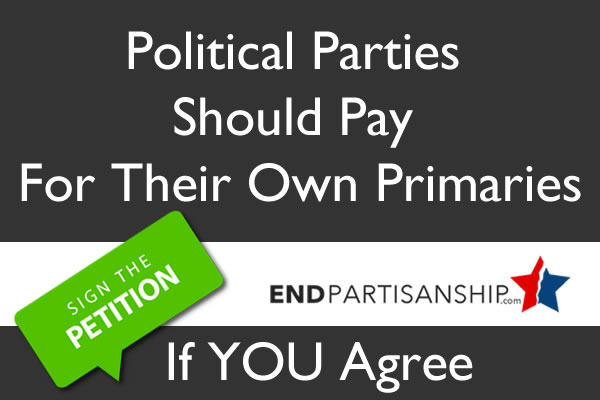Virginia Race for Governor Highlights Need for Competitive Primaries

http://youtu.be/-CDohsX-slo
Virginia's gubernatorial contest is the election to watch in 2013 Not only is it attracting more national media attention on the Democratic and Republican candidates, but the third party candidate, a Libertarian, is turning it into a more competitive campaign for the GOP. Virginia is not such a red and blue state anymore.
As a result of an election process that rewards hardline partisans, the race for Virginia governor is a typical scenario of two "polar opposite" candidates dominating the election. What Libertarian candidate Robert Sarvis' candidacy shows is the appeal of a third candidate who has no meaningful participation in the race until the general election. This results in little more than a chance to break through the "spoiler" candidate reality that his campaign plays.While his effect on the political dialogue could be noteworthy, a more inclusive system would put Sarvis’ candidacy before the voters at a more meaningful stage of the election -- during the primaries. In other words, the partisan primary process gives party-line Republican and Democratic voters an unequal opportunity to frame the public political discourse and legitimize their nominees.
Terry McAuliffe, the Democratic candidate, went through the primary unopposed, a better result than in 2009 when he ran for the same office and lost in the primary. Cuccinelli, the state Attorney General, was fortunate enough to bypass what could have been a costly GOP primary against Lt. Governor Bill Bolling after the Republican Party voted to choose its 2013 state candidates by holding a convention instead of a primary.
The current primary structure in Virginia and many states is meant not only to winnow the number of candidates down to two for the general election, but more specifically, to limit the choices between a Democrat and a Republican. Third party candidates are left out of the discussion until later on.
However, the GOP's decision to do away with their primary for the 2013 statewide races was seen as a sign of exclusivity which has harmed the party. Case in point: The 17,000 signatures Sarvis gathered to appear on the general election ballot -- much more than the 10,000 required -- outnumbered the delegates who attended the Republican Party's state convention by more than 2 to 1.
Accordingto Quinnipiac University polling, McAuliffe leads Cuccinelli with 45 percent to 41 percent, with Sarvis receiving 9 percent. If the race were between only McAuliffe and the attorney general, the race would no doubt be tighter as most of Sarvis' support would likely go to Cuccinelli, further emphasizing how the current system ensures that the only role Sarvis' campaign can play is that of the "spoiler" candidate and will no doubt be what many in the GOP will use to explain a Cuccinelli defeat.
There is a reason why the major parties should consider nonpartisan primary reform more thoroughly and that is because a "top-two" system, similar to the systems in California and Washington state, would effectively eliminate the concept of the "spoiler" candidate. Elections wouldn't be skewed as a result of a general election being a 3 person race because all voters and candidates, regardless of party affiliation, would participate on a single ballot and only the top-two vote getters would move on to the general election.
A nonpartisan primary would also a be a better platform for third party candidates to show off their appeal. Normally, no candidate receives 100 percent of their party’s support and according to the same Quinnipiac poll, Sarvis has support from 4 percent of Democrats, 7 percent of Republicans, and 16 percent of independents. As Sarvis is the most successful third party candidate in half a century in Virginia, there are many indicators that voters in Virginia and nationwide want more options and a break from hyper-partisan bickering.
Photo Credit: Richmond Times Dispatch




